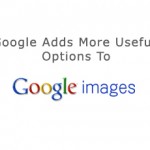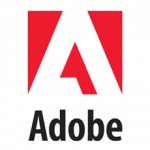 Sunnyvale, California — This has long been overdue, but Yahoo over the weekend initially begun testing displaying organic and paid listings using Microsoft’s search engine Bing for up to 25 percent of Yahoo Search traffic in the U.S., a key step toward enforcing a comprehensive search agreement the two companies hope will reshape the industry.
Sunnyvale, California — This has long been overdue, but Yahoo over the weekend initially begun testing displaying organic and paid listings using Microsoft’s search engine Bing for up to 25 percent of Yahoo Search traffic in the U.S., a key step toward enforcing a comprehensive search agreement the two companies hope will reshape the industry.
In a short while, Yahoo search users will begin to see results delivered by Bing. According to Yahoo’s Vice President Search Product Operations Kartik Ramakrishnan, the company has “initiated testing organic (also referred to as algorithmic) and paid search listings from Microsoft for up to 25 percent of Yahoo! Search traffic in the U.S.”
The so-called “shadow tests” reproduces how keywords will carry-out when Yahoo’s advertisers are plugged into Microsoft’s adCenter system, which will soon power the paid search businesses of both companies.
The test results will help determine whether Yahoo and Microsoft can flip the switch on their unusual partnership this fall, as they hope. This means that these search listings is now coming from Microsoft Ad networks. And, the only dissimilarity between the older and newer search is that the results will no longer be served by Yahoo, however, the interface and design of Yahoo search will remain the same.
“The next couple of weeks are going to be crucial,” said David Karnstedt, who runs search engine marketer Efficient Frontier.
As seen in the screenshot below, the organic search results in the yellow boxes are powered by Microsoft and contains a mixture of both organic and paid listings, the rest of the content on the page is still controlled by Yahoo themselves. Right now, the Microsoft powered search listings will only be displayed on Yahoo web search.

The Yahoo Search Blog explains this integration via a post which mentioned that:
As Yahoo demonstrated in the above screenshot, the overall page should would appear the same as the Yahoo! Search you are used to — with rich content and unique tools and features from Yahoo!. This also indicates that the search algorithm is still carried out by Yahoo Search.
The tests, which began almost one year after the partnership was declared, are part of a meticulously formulated blueprint that Yahoo and Microsoft hope will position them as an effective counterweight to industry leader Google Inc.
With testing now underway, the partners will gain less than a third of the $12.4 billion U.S. search market, they want to achieve enough scale to generate better returns for advertising clients, more revenue for themselves and greater profits for investors.
Microsoft anticipates the the 10-year revenue-sharing pact will help turn its ailing online services division into a profitable business. Yahoo also asserts that the agreement will enable it to reduce costs, focus on display advertising and deliver search results in more innovative ways. When regulators approved the deal back in February, Microsoft and Yahoo indicated that they planned to have search and advertising integration completed by the end of 2010.
Now, Ramakrishnan writes that, “we hope that our U.S. and Canada organic search listings in both desktop and mobile experiences will be fully powered by the Microsoft platform beginning in the August/September time-frame, and paid search in October.”
Despite the imminent changes, Yahoo has continued to add features and make design changes, and the company indicates that it will continue to do so post-integration. While Yahoo is free to choose any partner for mobile search and search advertising, the company said it will rely on Microsoft in the U.S., Canada, the U.K. and France.


